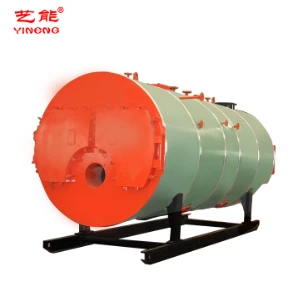ce certification indoor wood hot water boiler
CE Certification for Indoor Wood Hot Water Boilers A Comprehensive Guide
Heating systems have evolved significantly over the years, and wood hot water boilers have emerged as a popular choice for both residential and commercial heating applications. As concerns over environmental sustainability continue to rise, the demand for eco-friendly heating solutions, like wood boilers, is increasing. This article explores the importance of CE certification for indoor wood hot water boilers, ensuring both safety and efficiency for users.
Understanding CE Certification
CE marking is a certification that indicates a product’s compliance with European Union (EU) standards. The letters “CE” stand for “Conformité Européenne,” and products bearing this mark are considered safe for use within the European Economic Area (EEA). CE certification is crucial for manufacturers, as it provides assurance to customers that the product meets European health, safety, and environmental protection standards.
For indoor wood hot water boilers, obtaining CE certification involves a rigorous testing process that evaluates various aspects of the boiler’s performance, including emissions, efficiency, safety, and overall reliability. This testing is typically conducted by authorized bodies and ensures that the product meets the strict regulatory requirements established by the EU.
Benefits of CE Certification for Wood Hot Water Boilers
1. Safety Assurance One of the primary benefits of CE certification is the assurance of safety. Indoor wood hot water boilers operate at high temperatures and pressures, making proper design and manufacturing crucial. CE certification indicates that a boiler has been tested for safety, reducing the risk of accidents or malfunctions.
2. Environmental Compliance Indoor wood boilers can produce emissions, which may have adverse effects on air quality and the environment. CE certification ensures that the boiler adheres to strict emission standards, helping to minimize the environmental impact of wood burning.
3. Market Access In many countries within the EU, CE marking is mandatory for selling and distributing products. For manufacturers of indoor wood hot water boilers, obtaining CE certification is essential for market access. It facilitates entry into the European market and provides a competitive edge over non-certified products.
4. Consumer Trust The CE mark is widely recognized and understood by consumers. A product with CE certification instills confidence in potential buyers, as it assures them of quality and compliance with safety and environmental regulations. This trust can significantly influence purchasing decisions.
ce certification indoor wood hot water boiler

Regulatory Framework and Testing Process
The process of obtaining CE certification for indoor wood hot water boilers includes several steps
- Initial Design Assessment Manufacturers must ensure that their products are designed to meet the relevant EU directives, such as the Ecodesign Directive and the Low Voltage Directive.
- Testing The wood boiler undergoes rigorous testing by designated testing laboratories. This includes assessments of thermal efficiency, emissions, and safety features.
- Technical Documentation Manufacturers must compile and maintain technical documentation proving compliance with applicable standards.
- Declaration of Conformity After successfully meeting all testing requirements, manufacturers must draw up a Declaration of Conformity, stating that the product meets all EU directives.
- CE Marking Finally, the manufacturer affixes the CE mark to the product, indicating its compliance and allowing it to be marketed in the EU.
Conclusion
In conclusion, CE certification is vital for the production and sale of indoor wood hot water boilers within the EU. It ensures safety, environmental compliance, and market access while enhancing consumer trust. As the demand for sustainable heating solutions grows, manufacturers must prioritize obtaining CE certification to meet regulatory requirements and provide high-quality, eco-friendly products to their customers. By doing so, they not only comply with the law but also contribute to a more sustainable future.
-
Commercial Hot Water Boiler - Reliable Supplier & Factory Direct Price for Efficient Heating SolutionsNewsJul.07,2025
-
Top Hot Oil Boiler Manufacturer - Reliable Thermal Oil & Coal Fired Boiler Manufacturer ManufacturerNewsJul.07,2025
-
High-Efficiency Hotel Hot Water Boiler – Leading Exporters & Quotes for HotelsNewsJul.07,2025
-
High-Efficiency Electric Steam Boiler Reliable Products & Service Leading CompaniesNewsJul.06,2025
-
High-Efficiency Biomass Pellet Boiler Reliable Steam Boiler Service & QuotesNewsJul.06,2025
-
High-Efficiency Thermal Oil Boiler for Asphalt Plant – Reliable Supplier & Factory Direct ProductNewsJul.06,2025

